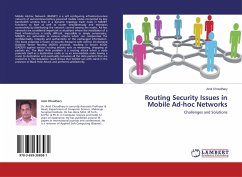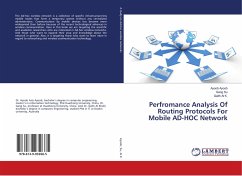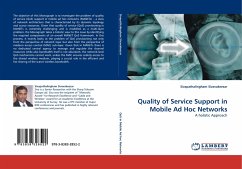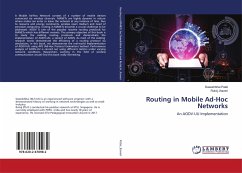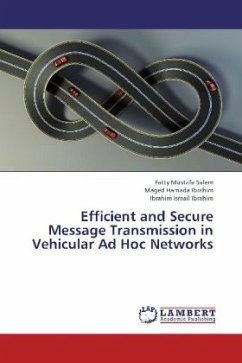
Efficient and Secure Message Transmission in Vehicular Ad Hoc Networks
Versandkostenfrei!
Versandfertig in 6-10 Tagen
32,99 €
inkl. MwSt.

PAYBACK Punkte
16 °P sammeln!
Different studies show that in 69% of cases, crashes happen because of the absence of critical and necessary information for drivers in appropriate time. New vehicles could be equipped with short-range radios capable of communicating with other vehicles or with Roadside Units at distances of at least one kilometer. Supposed Vehicular Ad Hoc Networks (VANETs) will enable a variety of applications for safety, traffic efficiency and driver assistance; by providing, for example, warnings on environmental hazards, traffic and road conditions (e.g., emergency braking, congestion, or construction sit...
Different studies show that in 69% of cases, crashes happen because of the absence of critical and necessary information for drivers in appropriate time. New vehicles could be equipped with short-range radios capable of communicating with other vehicles or with Roadside Units at distances of at least one kilometer. Supposed Vehicular Ad Hoc Networks (VANETs) will enable a variety of applications for safety, traffic efficiency and driver assistance; by providing, for example, warnings on environmental hazards, traffic and road conditions (e.g., emergency braking, congestion, or construction sites), and local information. As a result, the information conveyed over VANETs may affect life-or-death decisions. However, a formidable set of exploits and attacks becomes possible. Hence, the security of VANETs is indispensable where authentication and privacy are critical factors and significant challenges to be met. This book presents a new non-interactive protocols to provide authentication and preserve privacy among drivers in VANETs with the possibility of tracing malicious drivers only by the Trusted Third Party who is assumed to be a trusted entity in the system model.






